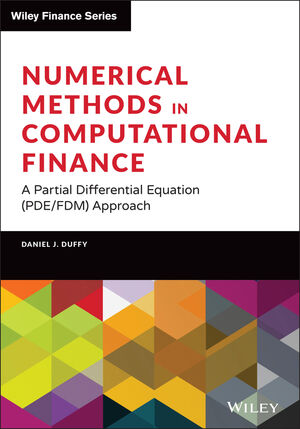Here's a list of books.
S. Goldberg
Introduction to Difference Equations Dover 1986
Useful for solutions of difference equations, divided differences and applications.
Kreider, Kuller, Ostberg and Perkins,
An Introduction to Linear Analysis Addison-Wesley
Al-round book on linear analysis and applications, aka KKOP
M. R. Spiegel,
Vector Analysis, Schaum Outline Series.
2d and 3d vector analysis; useful for later.
P.A. Schmidt, F. Ayres
College Mathematics, Schaum Outline Series.
High-school refresher, just in case you have forgotten some maths.
5A. “Vector Spaces of Finite Dimension”, G.C. Shephard, Oliver and Boyd 1966. (Good front-end to 5B)
== 5B “
Linear Functional Analysis”, B.P. Rynne and M.A. Youngson Springer 2000
Good readable intro.
- “Elements of the Theory of Functions and Functional Analysis”, A.N. Kolmogorov and S.V. Fomin Dover 1961
- "Real Analysis" N.B. Haaser and J.A. Sullivan Dover 1991
- “Linear Algebra”, G.E. Shilov Dover 1977
“
// Numerical Analysis
”
Numerical Methods”, G. Dahlquist an A. Bjorck Dover 1974
Great, practical book. ODEs as well.
“
Qualitative Theory of Ordinary Differential Equations”, F. Brauer, J.A. Nohel Dover 1969.
Good for theory of ODE.
Partial Differential Equations, P. Duchateau, D.W. Zachman, Schaum Series.
“
Operations Research”, R. Bronson, G. Naadimuthu, Schaum Series 1997
Very good for optimization. Lots of hands-on examples.
“Matrix
Operations”, R. Bronson 1989
Very good for matrices. Lots of hands-on examples.
- Linear Algebra, G.E. Shilov Dover 1977
- Financial Instrument Pricing using C++ Second Edition, Daniel J. Duffy 2018.
- Theory and Problems of Differential Equations, F. Ayres Schaum Series 1972 (LOTS of worked examples of ODEs).
- Mathematical Techniques for Biology and Medicine, W. Simon Dover 1972.
- College Mathematics P.A. Schmidt et al Schaum Series.
- Theory and Problems of Modern Algebra, F. Ayres Schaum Series.
- Analysis of Numerical Methods, E. Isaacson and H.B. Keller Dover.
- Calculus of Finite Differences and Difference Equation, Schaum’s Outlines.
- (very practical book on learning and applying finite differences; useful later on for sure).
Spiegel, M. (1999) Complex Variables Schaum’s Outlines.
**book on how to solve maths problems
How to Solve it
How to Solve It - Wikipedia
T. Apostol, Calculus Volume I John Wiley & Sons New York 1967 (esp. chapters 3, 4, 6, 9, 10,11,14)

